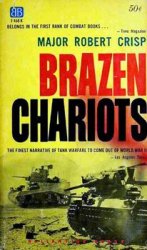Early in 1960, Eisenhower authorized a covert CIA programme for using Guatemala as a training base for Cuban emigres in preparation for a future attack on Castro's Cuba. The hope was that this would provoke a popular rising that would topple the regime. A secret mission statement defined the CIA's aims (see Source C).
SOURCE C
Excerpt from a paper prepared for the Senate Foreign Relations Committee, Washington, 16 March, 1960, quoted in The United States and the Origins of the Cuban Revolution by Jules R. Benjamin, published by Princeton university Press, uSA, 1992, p. 207.
The purpose of the program outlined herein is to bring about the replacement of the Castro regime with one more devoted to the true interests of the Cuban
People and more acceptable to the US in such a manner as to avoid any appearance of US intervention. Essentially the method of accomplishing this end will be to induce, support, and so far as possible direct action, both inside and outside of Cuba, by selected groups of Cubans.
The attack was launched in April 1961 soon after Kennedy, the incoming president, who had earlier been a Castro admirer, had given it his approval. It proved a fiasco. The invaders failed to receive the support they had expected from either the local Cubans or, more critically, the USA, and were killed or captured as soon as they landed. Forewarned of the attack, Castro's forces were waiting for them. It was obviously a military disaster for the USA, but an even greater diplomatic and political one. The Soviet Union could barely contain its joy and the young President Kennedy his embarrassment.
A victory parade was held in Havana. Life, a popular US magazine, described how 'Havana gleefully noted the wealth of the captured invaders: 100 plantation owners, 67 landlords of apartment houses, 35 factory owners, 112 businessmen, 179 lived off unearned income, and 194 ex-soldiers of Batista.' In a grand gesture of defiance to the USA, Castro announced to the cheering crowds at the parade that Cuba would now become a fully communist state. What he meant by this soon became apparent when elections were declared to be no longer necessary now that Cuba was effectively a one-party state.




 World History
World History









